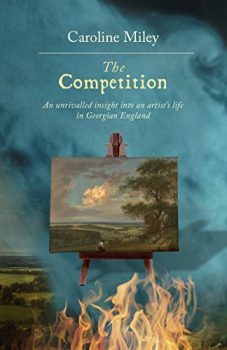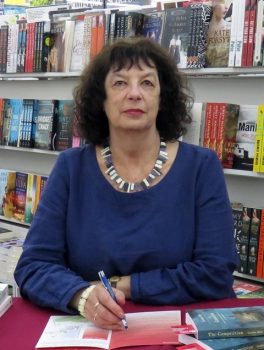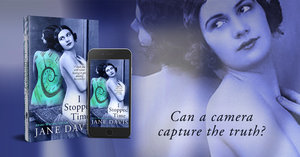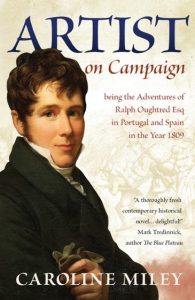It’s been a while (working for real money, caring for Dementia Dad, trying to carve out some writing time) but today I’m delighted to welcome Caroline Miley to Virtual Book Club, my author interview series which gives authors the opportunity to pitch their books to your book club, be it virtual or real.
Caroline Miley is an art historian and author of literary historical novels set in the late Georgian era. Her debut novel, The Competition, won a Varuna Fellowship and a Fellowship of Australian Writers award, and was selected by the Royal Academy of Arts, London, for it 250th Anniversary celebrations. Her latest novel, Artist on Campaign, was inspired by wondering what would happen if a larrikin artist was obliged to put up with the British Army, and vice versa.
Her interests are art, both as a practitioner and a viewer, books, movies, history, travel and gardens.
Q: Welcome, Caroline. Let’s dig in. Give me twenty words on why your novel should be a reader’s next read…
It’s funnier than most military history, has more escapades than most literary fiction, and is more literary and historical than most comic adventures.
Q: William Boyd plots for a year before he puts pen to paper. Maggie O’Farrell writes with a desire to explore an issue and understand how it could happen. She says that she ‘trusts the novel to know more than she does. Which side do you fall on, or are you somewhere in between?
I’m more on the Boyd side. I think about a book for a long time and do quite a bit of plotting before I start writing, although I do jot down notes and write scenes that occur to me as I go, which I may or may not use. I think some people feel that there’s not much room for exploration or creative serendipity in doing that, but to me that’s what’s happening during the thinking and plotting. There’s total freedom to change anything and go off in completely new directions before you’ve become committed to chapters and paragraphs.
Then when I start writing, I’m able to write quickly and concentrate on the writing itself, because I don’t have to worry about where this scene is going or whether it’ll fit into the overall structure. It also means that I don’t have to do a great deal of re-drafting. Of course if something new strikes me while I’m writing, I can always revise the plan.
Q: How great a part does research play in that process?
I do a great deal of research, which I love. Not just into the historical facts of the day, which is relatively easy. The information that’s more difficult to access is what people thought and felt and how they spoke and behaved. To try to get into that I read not only the novels of the period, but a lot of memoirs, diaries and letters, newspapers. There’s still a problem there, because even there, people censored themselves. But you can do a lot of reading between the lines, and art of the period is an enormous help – I wrote an article recently on the importance of Rowlandson’s cartoons in understanding the Georgian era and especially their attitudes to sex.
Getting into their heads is what I’ve tried to do with both Edward Armiger, the protagonist of The Competition, and Ralph Oughtred, in Artist on Campaign. They’re different sorts of men, but both are middle class. Ralph is a bystander at great events. He meets the Duke of Wellington, but only professionally and briefly. He has his own concerns, and I’m pretty sure they were much the same then as now: love, sex, food, drink, being comfortable, having fun, and, of course, worrying about money. It’s just the way he went about all these things and what he thought about them that is very different to today.
Q: When I was discussing historical fiction with Evie Woolmore, she said that there are three kinds of ‘historical novelists’: those who write in order to accurately reconstruct history in fictional or quasi fictional terms (Philippa Gregory or Hilary Mantel); those who write stories whose plot is reliant on and infused with the historical setting and thus which are historically very precise and well-researched (such as Harriet Steel’s novel Salvation, which I recently reviewed); and those (like me) who write novels which are not principally historical but work effectively in historical settings. Do you share that view and, if so, which category do you fall into?
Those are interesting distinctions. I started life as a historian and to me, history isn’t history if it’s not as accurate as you can possibly make it. Of course there are interpretations, but there are what one might call legitimate or reasonable interpretations, and others that aren’t. The novelist can introduce imagined elements into the gaps between the historical facts, but they must be consistent with the facts. If historical novels don’t immerse you authentically in the ‘other country’ that is the past, I’m not sure what the point of them is.
I have a couple of other categories too: novels principally about historical figures, such as Wolf Hall or The Other Boleyn Girl, and novels which are about imagined characters in a specific historical setting. Mine fall into the latter category. There’s a wonderful Raymond Lowry cartoon of a WW II battlefield with shells bursting and soldiers dashing past. Behind them stands a group holding a sign that says ‘1st Battalion Innocent Bystanders’. Those are the people I’m interested in – the bystanders in the historical pageant. The marine who was present when Captain Cook claimed Australia for England. What was life like for Captain Wentworth when he was at sea capturing prizes, not having tea with the Elliotts? What did he do in his spare time? So those are the people I like to write about – the Joe Averages of their day.
But to really represent Joe Average, I have to know not only who was King at the time and what sort of neckcloth Joe wore, but all the manners and mores of his society. I have to have read the books he read, and sung the songs he sang. I have to know what he thought of politics, if at all, and how he ate and spoke and thought of himself, what worried him and what didn’t. He must be a child of his own time, not a child of mine.
Historical accuracy in fiction is essential, to my mind, and I try to be absolutely faithful, not only to the facts but to the feelings. At the end of Artist on Campaign, which includes many actual people, I’ve placed a Historical Note and lists of the historical characters, to clarify where I’ve departed from the record.

Q: You’ve chosen to write about the late Georgian era. What is it that fascinates you about it?
It’s interested me for a long time. It’s the beginning of the modern scientific and industrial age, of the life that we know now and understand, but at the same time it’s the last era of the traditional ways of life that stretch back into the Middle Ages. It’s balanced on the edge of both. There’s a tension between the two, between the old and new, that’s fascinating. It was an age of exploration and revolution and the Napoleonic Wars, which changed the face of Europe, and of radical thinkers. My last book, The Competition, dealt with some of that clash of cultures. And despite the aura of demure primness that often seems to surround Jane Austen, the Georgian era was also bawdy, rollicking, free-wheeling and boisterous – the last such time before the Victorians introduced straight-laced middle-class morality.
Q: Hilary Mantel says that women writers must stop rewriting history to make their female characters falsely “empowered”. Part of this, she says, is the desire to give ‘a voice to those who have been silenced’, which fiction provides a perfect vehicle for. What is your reaction to this?
I call her ‘St Hilary de Mantel’, the patron saint of writers of literary historical fiction. She put it on the map again, for which I’m eternally grateful. And yes, I agree entirely. The fact is that up until fairly recently, women did not have much agency and very little public life. People sometimes point out women such as Eleanor of Aquitaine when I say that, but to me that’s rather like using the Queen as an example of a 20th century woman. And I do know that women sometimes ran their own businesses at various periods. But basically, they laboured under a huge weight of legal disabilities and social expectations, especially the respectable middle class. The very poor and the very rich have always been freer to behave outrageously – Lady Caroline Lamb, for instance, but certainly not her maid, and even she was ostracised. So, yes, it’s false to empower them.
Personally, I don’t think it does women any favours to rewrite the historical record in this way. They were very, very constrained, and that should be shown. And the highly-empowered, feisty heroine who refuses to conform to society’s expectations just can’t exist in a book that purports to evoke or represent a past age. She throws the whole balance and environment of the novel out. It is no longer authentic.
That’s at least one of the reasons my protagonists are male. If I were to write a book set in the late Georgian era with a female protagonist, it would have to be a feminist tract, and I don’t really want to write that at the moment, although there is something lurking in the background. But such a book couldn’t have a happy ending – not if it is to be authentic.

Caroline has kindly allowed me to include an excerpt from Artist on Campain.
General Sherbrooke was a stocky man in his mid-forties with a high forehead, long nose, determined chin and a mouth that looked as though it had never smiled. I introduced myself and named my task. He sprang to his feet, the colour flaring in his cheeks.
“Damn you, sir! To intrude upon me in this way! I had thought your errand of some importance when you mentioned the Horse Guards, or I should never have seen you.”
I recoiled, but after my disappointment with General Wellesley didn’t want to lose yet another subject without putting up a fight. I tried to explain what the Horse Guards had to do with it while cursing them internally with all my strength for exposing me to this mistreatment.
“Damn your impertinence! I am second in command of this entire army. Do you think I have leisure for your trifling?”
I made another attempt to press my case and almost staggered under the subsequent tirade of vituperation, which included terms I had not expected to hear one gentleman use to another. It was worsened by the presence of several officers, who regarded me with interest. Unable to answer back as I wanted and smarting under his attack, my resolve wilted. I was no match for General Sherbrooke, that was plain. When the General had tired of abusing me I crept out of the room in silence.
First Wellesley, now Sherbrooke. I had had this commission since before Easter. April was nearly over and I had succeeded in making a study of one man, General Cradock, and he had now disappeared, so I had no chance of improving it unless I followed him to Gibraltar. The way things were unfolding, I would not be surprised if I had to do exactly that. This commission, which was to have made my fortune, now hung around my neck like a millstone. I could not see how it would ever be completed. Perhaps when Bonaparte was defeated one of these years, some of these gentlemen would have time for me – if they weren’t immediately off to some other, equally pressing concern. The Americas, probably. I could see myself spending the rest of my life in receipt of increasingly threatening letters from the War Office while I became a fixture in the train of the army, consuming all my substance like the Prodigal Son and eventually returning home in rags. And all the while, to be rated like an importuning tradesmen by these… these… officers!
Q: Do you find yourself returning to any recurring themes within your writing and, if so, are you any closer to finding an answer? Or, more simply put, What is the question that keeps you writing?
I keep writing because I love writing – the ideas, the thinking, working out how to say what I want to say. Words, words, words! The manipulation of language – all that.
I suppose the really basic question is: What’s life about, and how should we live it? I don’t expect to find an answer. The novels are explorations of possibilities, which vary according to what sort of person you are and your circumstances.

Q: Are there any books on writing that you find particularly useful and would recommend?
When I started writing fiction and knew nothing about it, a friend who taught creative writing recommended Robert McKee’s Story. It was a terrific start. I found it enormously helpful and it has a well-deserved reputation as a classic. I find screenwriters really useful when it comes to plot and structure – their profession seems to make them focus on critical elements. My next best book is also from the world of screenwriting: Blake Snyder’s Save the Cat. I wouldn’t recommend it so much as a basic handbook, but since I’ve been a bit further along, I’ve found it invaluable. It’s also my cat’s favourite book. (see photo)
Q: What is your favourite opening line of a novel?
If there’s a better opening line than that of Gabriel García Marquez’ One Hundred Years of Solitude, I don’t know what it is. It’s brilliant – both in the original and the translation. Every word is essential and every word glitters.
“Many years later, as he faced the firing squad, Colonel Aureliano Buendía was to remember that distant afternoon when his father took him to discover ice.”
(“Muchos años después, frente al pelotón de fusilamiento, el coronel Aureliano Buendía había de recordar aquella tarde remota en que su padre lo llevó a conocer el hielo.”)
Want to find out more about Caroline and her work?
Visit her web page is at https://www.carolinemiley.com/ or find her on Facebook at https://www.facebook.com/carolinemileywriter/
If there’s anything else you’d like to ask Caroline please leave a comment.
To have future posts delivered directly to your in-box, visit the sidebar on the right and subscribe to my blog, or to find out about new releases, competitions and freebies, subscribe to my newsletter and I will send you a free copy of my novel, I Stopped Time, as a thank you.
While I have your attention, can I please draw your attention to my updated Privacy Policy. (You may have noticed, they’re all the rage.) I hope this will reassure you that I take your privacy seriously.
Remember, if you enjoyed this post please share it.
If you have subscribed to my blog but no longer wish to receive these posts, simply reply with the subject-line ‘UNSUBSCRIBE’ and I will delete you from my list.



